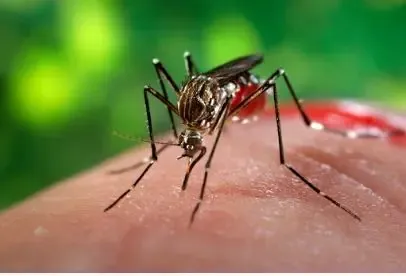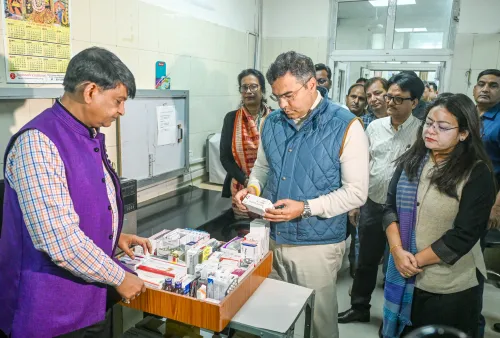South Africa's Health Department Warns of Increasing Malaria Cases

Synopsis
Key Takeaways
- The South African Department of Health emphasizes the need for public vigilance against malaria.
- Provinces such as Limpopo, Mpumalanga, and KwaZulu-Natal are experiencing increased malaria cases.
- Healthcare providers must maintain a high index of suspicion for malaria in patients with flu-like symptoms.
- Timely diagnosis and treatment are crucial for saving lives.
- Individuals traveling during Easter should take malaria prevention medication.
Johannesburg, April 17 (NationPress) The South African Department of Health has called on the public to stay alert regarding malaria as there has been a modest rise in cases across the nation, especially in provinces known for malaria, including Limpopo, Mpumalanga, and KwaZulu-Natal.
The department announced on Wednesday that it has also observed malaria outbreaks in several neighboring countries within the Southern African Development Community (SADC) region, notably in Botswana, Eswatini, Namibia, Mozambique, and Zimbabwe, as reported by Xinhua news agency.
"This situation raises the risk of potential cross-border transmission of this preventable illness, especially as individuals travel throughout the region for cultural and religious activities during the Easter holidays," stated department spokesperson Foster Mohale.
He indicated that the department will maintain a state of heightened awareness in the event of a sudden surge in local malaria transmission.
"Healthcare providers in both endemic and non-endemic areas have been advised to keep a high index of suspicion for malaria in patients exhibiting flu-like symptoms and to report confirmed cases promptly to aid in malaria surveillance and response efforts," Mohale further commented.
"They have also been reminded to always ask about travel history, particularly from high-risk areas, and to perform immediate malaria testing and repeat tests if symptoms persist despite negative results," the spokesperson added.
"Timely diagnosis and treatment are essential for saving lives and curtailing further spread of the disease."
"The Department will stay vigilant for sudden spikes in local malaria transmission. The disease is mainly spread through the bite of an infected female mosquito known as Anopheles. Common symptoms include fever, chills, headache, muscle pain, nausea, loss of appetite, and vomiting. Therefore, anyone experiencing any of these symptoms should seek care at the nearest healthcare facility."
As mentioned in the statement, malaria is primarily transmitted by the bite of infected female Anopheles mosquitoes.
Common symptoms consist of fever, chills, headache, muscle pain, nausea, loss of appetite, and vomiting.
The health department recommends individuals traveling during the Easter holidays to take malaria preventive medication, such as doxycycline, which is available at all public health facilities.
If any symptoms develop, individuals are encouraged to seek immediate medical attention and always inform healthcare providers about their recent travel history.










